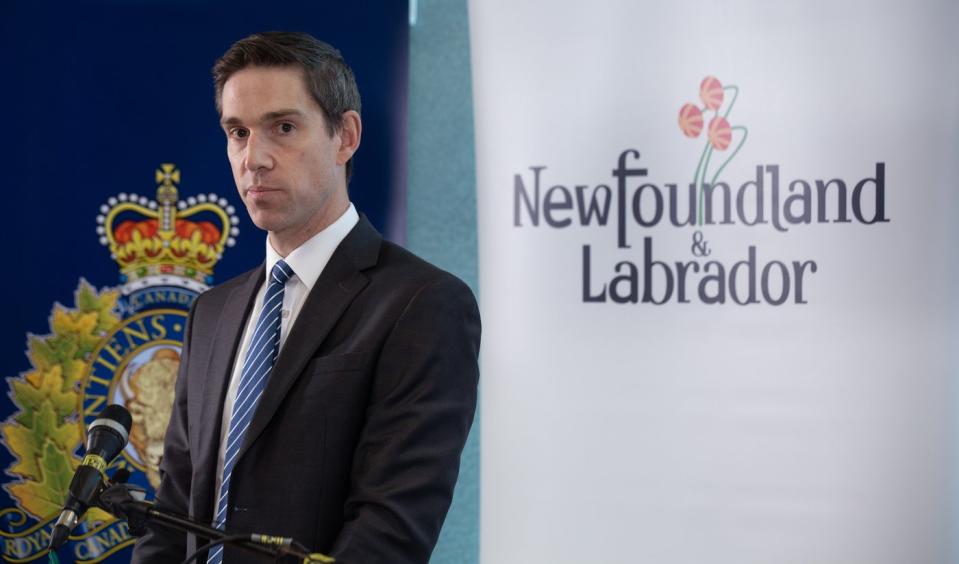Newfoundland and Labrador launching court case against federal equalization program

ST. JOHN'S, N.L. — The Newfoundland and Labrador government revealed Thursday that it plans to take Ottawa to court over the federal equalization program, saying it puts Canada’s easternmost province at a disadvantage.
Provincial Finance Minister Siobhan Coady and Attorney General John Hogan told reporters they intend to file the constitutional challenge in the coming weeks.
A government news release said the Constitution Act of 1982 explains that equalization "is intended to ensure provincial governments have sufficient revenues to provide comparable levels of public services at comparable levels of taxation."
"Essentially, fairness for all citizens," the release said. "Currently, this fairness is not achieved for Newfoundland and Labrador."
Equalization was introduced by the federal government in 1957, and at some point since then, the program has paid benefits to every province in the country, according to a federal government website. The three territorial governments are excluded from the regime.
Whether or not a province qualifies for payments each year — and how much it may be entitled to — depends on its "fiscal capacity," which is determined by the total amount of revenue it could bring in if its taxes were at the national average rate, the website said. Provinces with a lower-than-average fiscal capacity get a cheque; the others do not.
Newfoundland and Labrador qualified for equalization this year for the first time since 2008, netting a $218-million boost for the 2024-25 fiscal year. However, the provincial government contends that the equalization formula is flawed, and that it could have received between $450 million and $1.2 billion in each of the last five years instead of receiving nothing.
The formula does not account for the high cost of providing services to the country's most sparsely populated and most rapidly aging province, Thursday's news release said. It also took aim at the cap imposed on equalization payments, since it is determined by factoring in 100 per cent of what Newfoundland and Labrador makes from its natural resources — namely, its offshore oil sector — but does not consider costs borne by the province to develop them.
Nor does it account for wild price fluctuations in the oil and gas market that can ultimately impact a province's revenues, the release said.
The province also has qualms with the way excess equalization funds are doled out. It said any extra money is given only to provinces already receiving equalization, and it should instead be distributed to all provinces.
Nova Scotia Premier Tim Houston said his government will follow with interest any action taken by the government of Newfoundland and Labrador.
He said he and Premier Andrew Furey have similar thoughts on the federal government’s obligations and whether they are meeting them.
“From past discussions, I would say we are pretty closely aligned philosophically with the position Newfoundland (and Labrador) has had,” Houston told reporters after a cabinet meeting.
Saskatchewan Premier Scott Moe said in a post on X, formerly Twitter, that he supports Newfoundland and Labrador's initiative.
"I have asked our attorney general to reach out to her counterpart to discuss our province’s legal intervention to support their case," he wrote.
André Lecours, a professor of political studies at the University of Ottawa, said Newfoundland and Labrador's constitutional challenge is a long shot, but it could prompt discussions with the federal government that lead to favourable change.
Lecours said the Canadian Constitution enshrines the federal government's commitment to making equalization payments, but he said the terminology is very broad, which will make it difficult to contest in court.
"To make the argument that public services in Newfoundland and Labrador are not of comparable quality to elsewhere is difficult, and then to show that it's really equalization that's responsible for that? To me, it sounds very unlikely to succeed," Lecours said in an interview.
He said Newfoundland and Labrador's critiques are about how the program is delivered, which is not covered by the Constitution.
"I think the best strategy would be to get some kind of support from like-minded provinces," he added, pointing to Alberta and Saskatchewan, both of which have argued that revenue from natural resources should be excluded from the cap determination.
The federal Finance Department did not immediately respond to a request for comment.
This report by The Canadian Press was first published May 30, 2024.
— With files from Keith Doucette in Halifax
Sarah Smellie, The Canadian Press

 Yahoo Finance
Yahoo Finance 